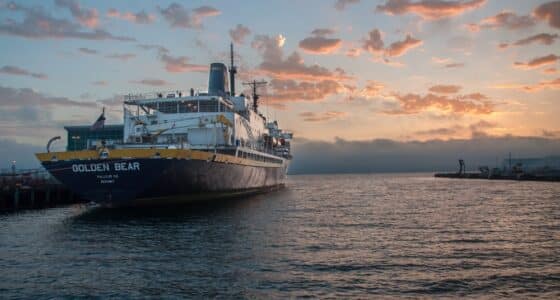Dennis and Susan Payne filed a mesothelioma lawsuit against General Electric after he was diagnosed with the rare, fatal form of cancer. Their claim referenced Mr. Payne’s years with the California Maritime Academy, when he worked aboard a training ship and was exposed to asbestos in a General Electric turbine. Though the company requested that the case be dismissed, the judge hearing the case denied their petition for summary judgment, finding that there was enough evidence to warrant a jury determining whether the man’s illness and subsequent death had been caused by insulation in the GE products, and whether the company had a duty to warn about its dangers.

Mesothelioma Victim Points to Asbestos in Ship’s GE Turbine for Illness
In their mesothelioma claim, the couple pointed to Mr. Payne’s having been regularly exposed to asbestos from General Electric turbines while he’d worked aboard the Golden Bear II, a ship originally completed and launched in 1940, acquired by the Navy, and loaned to the California Maritime Academy to use as a training ship. Mr. Payne had been a marine engineering student at the school from August 1972 to July 1975, and after the ship developed a turbine problem, it was brought to the school for its Chief Engineer, instructors, and students to inspect and repair.
The mesothelioma claim asserts that Mr. Payne was exposed to asbestos when he observed the turbine and its insulation being inspected and removed, along with gaskets, lagging, and insulation blankets. He recalled seeing dust from the work, and one of his classmates had blown asbestos insulation from the casing of the turbine. Another classmate confirmed this, and the victim even provided photos he had taken during the inspection.
GE’s Argument Against Being Named in Mesothelioma Claim Falls Short
In response to being named as a defendant in the mesothelioma lawsuit, General Electric put forward several arguments, including that the Paynes were relying on unsupported allegations and inspections and that a warning placed on turbines delivered in 1940 would not have affected Mr. Payne’s behavior in 1975. They said that their duty to warn ended at the point of sale, and afterward became the responsibility of the Navy, Maritime Administration, Coast Guard, and California Maritime Academy.
After listening to arguments from both sides, the court sided with the mesothelioma victim, finding that General Electric’s duty to warn extended beyond 1940 because it had provided technical advice over the turbine’s lifetime, and that a 1972 letter in which General Electric warned another customer about asbestos exposure risks created factual questions about whether the company knew or should have known about dangers to end users like Payne. The court also found that the testimony about Mr. Payne’s exposure was sufficient to establish a question of fact for a jury to decide. As a result, the request for dismissal was denied, and the case will move forward.
If you or someone you love has been diagnosed with mesothelioma, the Patient Advocates at Mesothelioma.net are here to help. Contact us today at 1-800-692-8608 to learn more.
